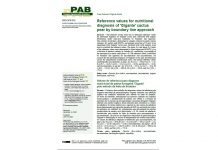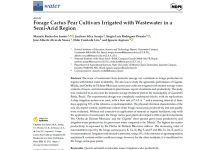Edaphoclimatic conditions determine variations in availability of water and nutrients, susceptibility to erosive processes and expression of the genetic potential of the cactus pear. Thus, management systems consistent with environmental specificities influence the expression of the plant’s structural characteristics, its yield and the forage quality. Therefore, the aim of this study was to characterize the soils of traditional cactus pear production systems and to correlate it with the productivity and mineral and chemical composition of cladodes in agroecosystems in the semiarid region of Bahia. For that, five stratified agroecosystems were selected based on the distinction of the characteristics of soils, vegetation, relief, altimetry, typology of producers and production systems of cactus pear. The crop yield data were obtained based on the harvest of cladodes from all plants in each repetition, carried out between August and September 2017. Each of the three replications, in the 20 properties, had an average useful area of 14 m2 and an average quantity of 16 plants. For the evaluation of bromatological characteristics, at the time of collection, an average of 34 samples of cladodes were collected per repetition, with approximately 40 g each. Soils with better natural fertility, that is, with higher values of sum of exchangeable bases (SB), effective cation exchange capacity (t), cation exchange capacity at pH 7.0 (T) and base saturation index (V), do not necessarily determine better structural performance of plants compared to less fertile soils, but they influence higher productivity. Other factors associated with management and climate influenced plant
structure, productivity and chemical quality of cactus pear cladodes.





